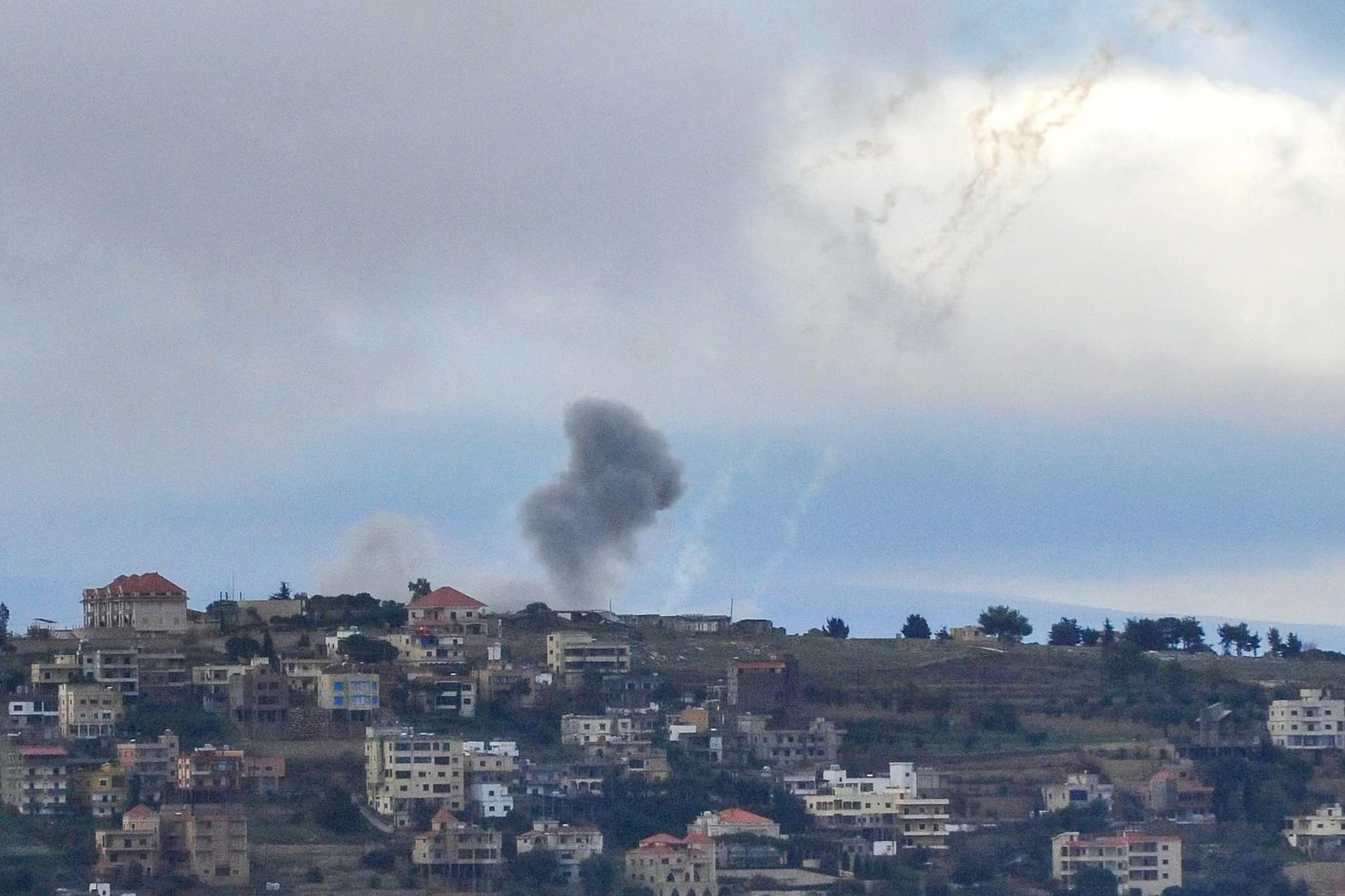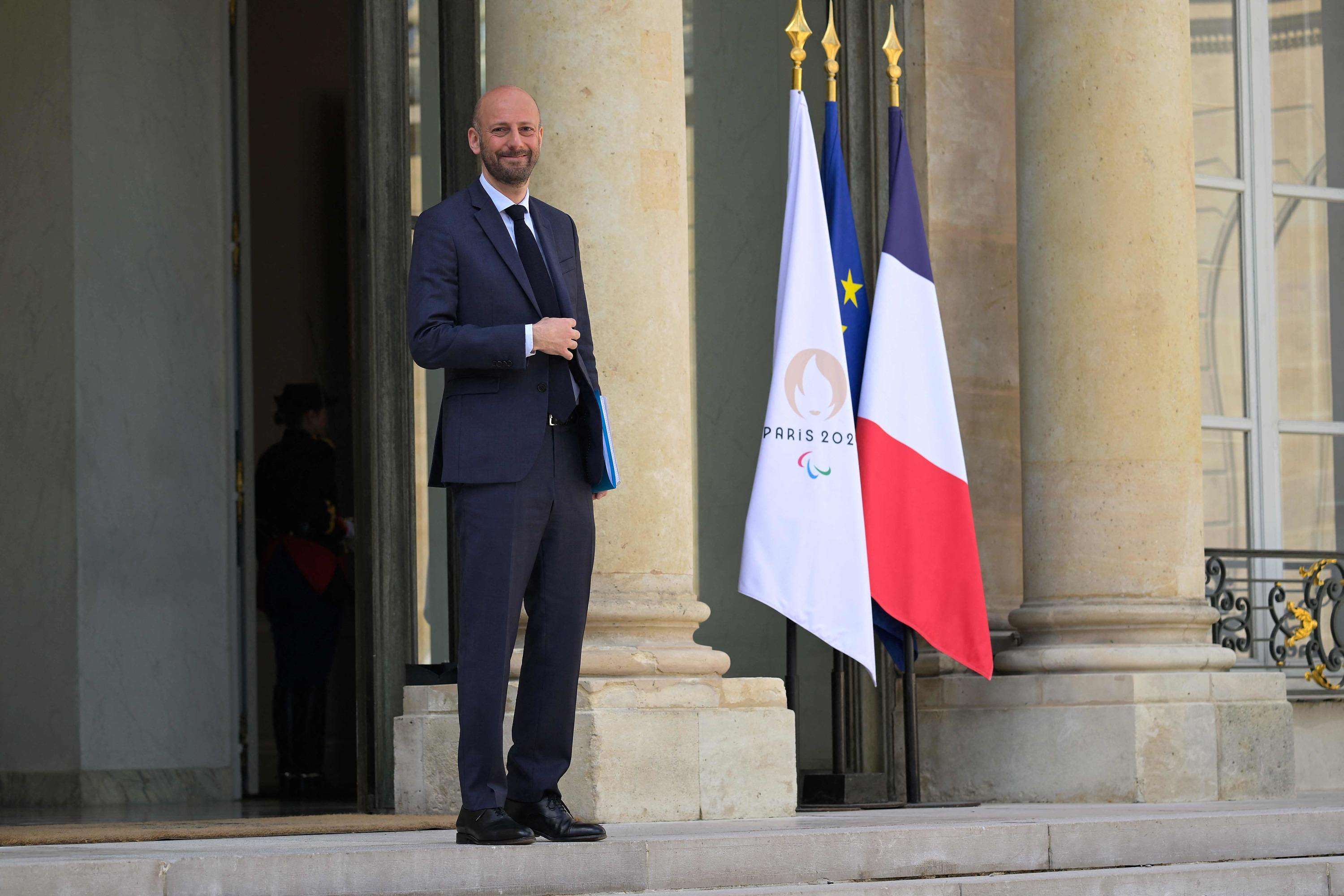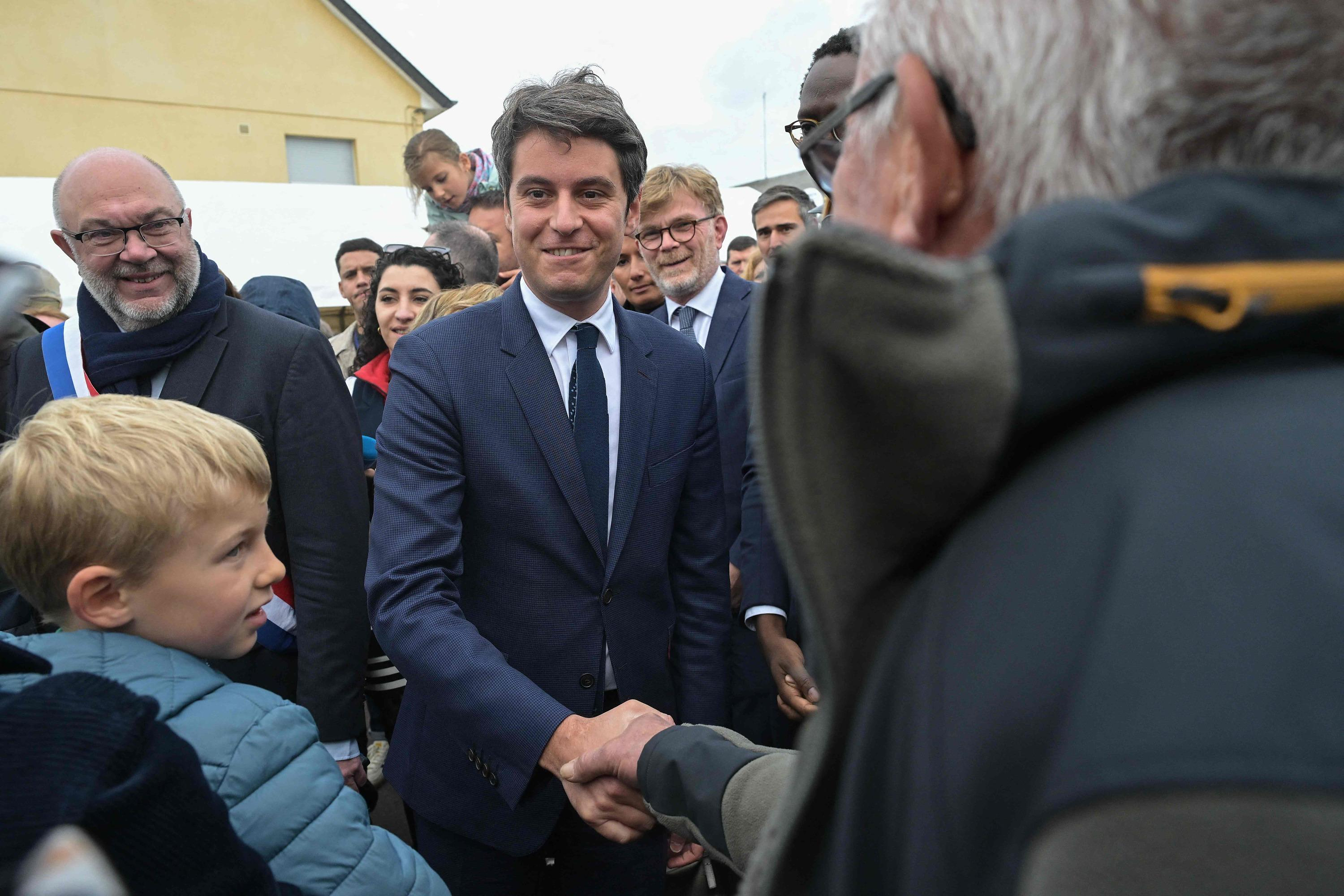Every day, the tone rises between Israel and Lebanon. Just like the fear of an extension of the conflict. The Israeli army says it is ready to intervene against Hezbollah “if necessary” and to enforce UN Security Council Resolution 1701 “by force”. This resolution, adopted in 2006 in exchange for a ceasefire, provides for the disarmament of all militias, and mainly that of Hezbollah, between the Litani River (30 kilometers) and northern Israel. 15,000 peacekeepers from the United Nations Interim Force in Lebanon (UNIFIL) were then deployed to enforce it.
Alas, Hezbollah kept its weapons, arguing that Israel was occupying the Shebaa farms. “This vague zone between Lebanon and Syria was poorly demarcated during the French mandate. Beirut claiming it, Israel assures that it belongs to the Golan Heights (annexed by Israel in 1967, Editor's note.) and Syria maintains a cautious neutrality", deciphers Fabrice Balanche, lecturer in geography at the University of Lyon 2 and end connoisseur of the region. This is in reality a pretext for Hezbollah to keep its weapons and its troops, which today allow it to play a predominant role in Lebanon.
Hamas' rezzou on October 7 revived this barely extinguished conflict. The sporadic fire exchanged on both sides of the blue line, which de facto separates Israel and Lebanon, with Beirut not recognizing Israel, has intensified. The Lebanese authorities have filed, for the third time, a complaint with the UN Security Council for violation of resolution 1701. Acmé: the elimination of Saleh Al-Arouri, number 2 of Hamas, in the suburbs of the capital Lebanese women, on January 2.
“We will restore the security of the population through an international political arrangement aimed at pushing Hezbollah beyond Litani, on the basis of UN resolution 1701,” said the Minister of Defense on Thursday, December 7. Israeli, Yoav Gallant. “We must find a diplomatic solution,” implored Amos Hochstein, an American envoy this Thursday. In fact, 80,000 Israelis had to evacuate the north of the country, and thousands of Lebanese left their homes.
In 2006, while Israel intervened militarily in Gaza, Hezbollah fired on an Israeli patrol and sparked a new conflict. 119 Israeli soldiers are killed in one month, and a quarter of Lebanon's population is displaced. France and the United States then used all their diplomatic weight to put an end to hostilities. “Israel wanted a security zone on its northern border in continuity with its occupation of the country between 1982 and 2000,” recalls Fabrice Balanche. The adoption of resolution 1701 grants it. But Hezbollah does not disarm, despite the presence of peacekeepers.
In 2008, the Lebanese government attempted to implement terms of the agreement and lower Hezbollah's influence by firing the director of Beirut's airport and dismantling the movement's communications infrastructure. “After 48 hours of civil war, Hezbollah takes control of Beirut,” relates Fabrice Balanche. At the same time, Paris reconnects with the Syrian regime of Bashar Al-Assad “and believes that it is possible to domesticate Lebanon thanks to the Euro-Mediterranean Union. The war in Syria put an end to these hopes and ultimately strengthened Hezbollah and Iran,” underlines the expert.
This French abandonment and the inability of the central government to enforce its authority in South Lebanon prevented the application of Resolution 1701, regularly leading to tensions with Israel. Hezbollah then strengthened its hold and strengthened its military presence. In addition, its fighters have become seasoned in Syria. A constant threat to the Jewish state, all the greater since the Hamas attack and the fear of a second front. “In the short term, Israel will not intervene in Lebanon because the United States will prevent it. In a few months, however, the army and Benjamin Netanyahu will want to definitively get rid of this threat and enforce Resolution 1701 by force,” warns Fabrice Balanche.
A task that promises to be a challenge, Hezbollah having a significant arsenal, as well as undeniable military experience. Hassan Nasrallah, the secretary general of Hezbollah, announced that its armed wing now had 100,000 fighters. Its arsenal also includes 130,000 projectiles, rockets and missiles, but also tanks, drones, launchers... which makes it one of the most formidable militias in the Middle East.

 B:SM will break its investment record this year with 62 million euros
B:SM will break its investment record this year with 62 million euros War in Ukraine: when kyiv attacks Russia with inflatable balloons loaded with explosives
War in Ukraine: when kyiv attacks Russia with inflatable balloons loaded with explosives United States: divided on the question of presidential immunity, the Supreme Court offers respite to Trump
United States: divided on the question of presidential immunity, the Supreme Court offers respite to Trump Maurizio Molinari: “the Scurati affair, a European injury”
Maurizio Molinari: “the Scurati affair, a European injury” First three cases of “native” cholera confirmed in Mayotte
First three cases of “native” cholera confirmed in Mayotte Meningitis: compulsory vaccination for babies will be extended in 2025
Meningitis: compulsory vaccination for babies will be extended in 2025 Spain is the country in the European Union with the most overqualified workers for their jobs
Spain is the country in the European Union with the most overqualified workers for their jobs Parvovirus alert, the “fifth disease” of children which has already caused the death of five babies in 2024
Parvovirus alert, the “fifth disease” of children which has already caused the death of five babies in 2024 The A13 motorway will not reopen on May 1
The A13 motorway will not reopen on May 1 More than 1,500 items for less than 1 euro: the Dutch discounter Action opens a third store in Paris
More than 1,500 items for less than 1 euro: the Dutch discounter Action opens a third store in Paris 100 million euros in loans, water storage, Ecophyto plan… New measures from the executive towards farmers
100 million euros in loans, water storage, Ecophyto plan… New measures from the executive towards farmers “He is greatly responsible”: Philippe Martinez accuses Emmanuel Macron of having raised the RN
“He is greatly responsible”: Philippe Martinez accuses Emmanuel Macron of having raised the RN Les Galons de la BD dedicates War Photographers, a virtuoso album on the Spanish War
Les Galons de la BD dedicates War Photographers, a virtuoso album on the Spanish War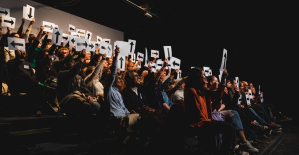 Theater: Kevin, or the example of an academic failure
Theater: Kevin, or the example of an academic failure The eye of the INA: Jean Carmet, the thirst for life of a great actor
The eye of the INA: Jean Carmet, the thirst for life of a great actor The Nuc plus ultra: St Vincent the Texane and Neil Young the return
The Nuc plus ultra: St Vincent the Texane and Neil Young the return Skoda Kodiaq 2024: a 'beast' plug-in hybrid SUV
Skoda Kodiaq 2024: a 'beast' plug-in hybrid SUV Tesla launches a new Model Y with 600 km of autonomy at a "more accessible price"
Tesla launches a new Model Y with 600 km of autonomy at a "more accessible price" The 10 best-selling cars in March 2024 in Spain: sales fall due to Easter
The 10 best-selling cars in March 2024 in Spain: sales fall due to Easter A private jet company buys more than 100 flying cars
A private jet company buys more than 100 flying cars This is how housing prices have changed in Spain in the last decade
This is how housing prices have changed in Spain in the last decade The home mortgage firm drops 10% in January and interest soars to 3.46%
The home mortgage firm drops 10% in January and interest soars to 3.46% The jewel of the Rocío de Nagüeles urbanization: a dream villa in Marbella
The jewel of the Rocío de Nagüeles urbanization: a dream villa in Marbella Rental prices grow by 7.3% in February: where does it go up and where does it go down?
Rental prices grow by 7.3% in February: where does it go up and where does it go down? Even on a mission for NATO, the Charles-de-Gaulle remains under French control, Lecornu responds to Mélenchon
Even on a mission for NATO, the Charles-de-Gaulle remains under French control, Lecornu responds to Mélenchon “Deadly Europe”, “economic decline”, immigration… What to remember from Emmanuel Macron’s speech at the Sorbonne
“Deadly Europe”, “economic decline”, immigration… What to remember from Emmanuel Macron’s speech at the Sorbonne Sale of Biogaran: The Republicans write to Emmanuel Macron
Sale of Biogaran: The Republicans write to Emmanuel Macron Europeans: “All those who claim that we don’t need Europe are liars”, criticizes Bayrou
Europeans: “All those who claim that we don’t need Europe are liars”, criticizes Bayrou These French cities that will boycott the World Cup in Qatar
These French cities that will boycott the World Cup in Qatar Paris 2024 Olympic Games: “It’s up to us to continue to honor what the Games are,” announces Estanguet
Paris 2024 Olympic Games: “It’s up to us to continue to honor what the Games are,” announces Estanguet MotoGP: Marc Marquez takes pole position in Spain
MotoGP: Marc Marquez takes pole position in Spain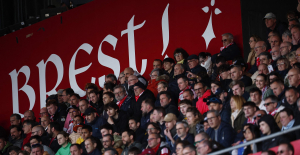 Ligue 1: Brest wants to play the European Cup at the Stade Francis-Le Blé
Ligue 1: Brest wants to play the European Cup at the Stade Francis-Le Blé Tennis: Tsitsipas released as soon as he entered the competition in Madrid
Tennis: Tsitsipas released as soon as he entered the competition in Madrid